There is a flawed understanding of mental health by both ordinary citizens as well as top position-holding politicians and parliamentarians of this country.
On May 23, Punjab Police tweeted warning that anyone who survives a suicide attempt could be liable to one year’s imprisonment under Section 325 of Pakistan Penal Code. The post was accompanied by the hashtags #BuildingForBetter and #Awareness.
In response to the insensitive tweet, the Punjab Police faced a massive, angry backlash from the public outraged at the insensitivity and ignorance of a message like that. Later, the law enforcement agency of the largest province in the country deleted all the comments under the tweet and retweeted it with the following text:
“The Punjab Police have started a law awareness campaign on its social media pages. We had tweeted to discourage people who have suicidal tendencies and warned them about Pakistani laws on mental health, according to which committing suicide is a crime and someone who survives a suicide attempt will be liable to one year’s imprisonment under Section 325 of the Pakistan Penal Code. The tweet was aimed at highlighting the blessing of life. Your life is not only important for you but also for your family, so don’t waste it by killing yourself. We tweeted to aware people about law on mental health and we didn’t mean to hurt anyone’s feelings. We thank our followers for sharing their thoughts and highlighting other aspects of the post.”
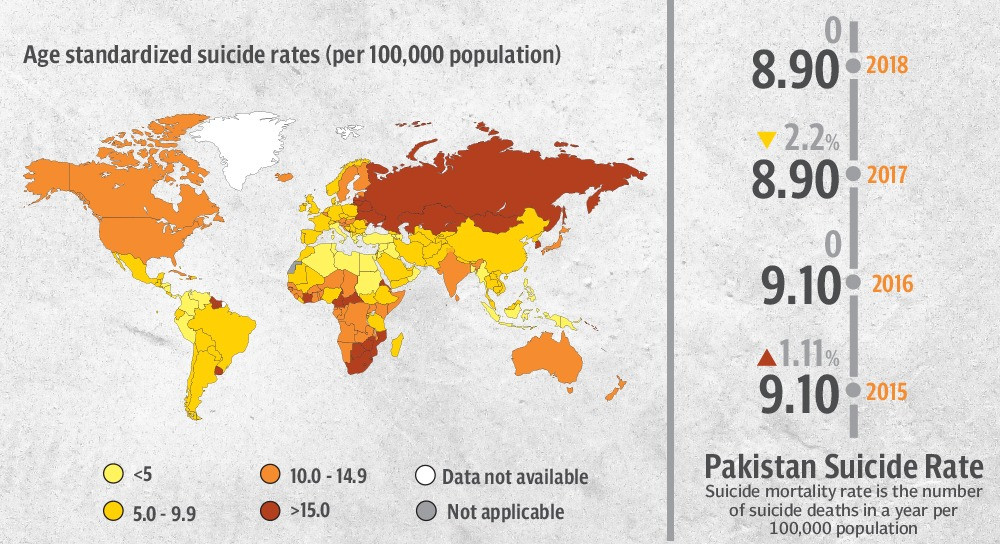
Suicide and Islam
According to Mufti Faisal Japanwala, who teaches Islamic Studies at Iqra University, said that it is a fact that in Islam attempting suicide is a crime, but telling people that survivors of attempted suicide will be liable for one year’s punishment, is not the right way to aware people about the law. “If a depressed person knows the consequences of attempted suicide so he or she will try to use effective methods in which he or she wouldn’t be able to survive,” he said. “We need to look for factors that are causing mental health disorders among people instead of scaring them with laws pertaining to imprisonment and fines. Moreover, keeping in view difficult financial issues people are facing these days, the government needs to provide free counseling services and set up rehabilitation centres,” he advised.
Suicide remains one of the leading causes of death in the world, according to WHO’s latest estimates, published in ‘Suicide worldwide in 2019’ on June 17, 2021. Every year, more people die because of suicide than HIV, malaria, or breast cancer ̶ or war and homicide. In 2019, over 700, 000 people died by suicide: one in every 100 deaths, prompting WHO to produce new guidance to help countries improve suicide prevention and care.
According to WHO, media needs to report with responsibility in relation to suicide. Media reports of suicide can lead to a rise in suicide because of imitation (or copycat suicides)—especially if the report is about a celebrity or describes the method of suicide. WHO’s new guide advice monitoring the reporting of suicide and suggests that media counteract reports of suicide with stories of successful recovery from mental health challenges or suicidal thoughts. It also recommends working with social media companies to increase their awareness and improve their protocols for identifying and removing harmful content.
According to a research report published in the International Journal of Psychiatry and Law in 2016, copies were obtained of the criminal codes from 192 countries and states; in 25 suicide is currently illegal, and an additional 20 countries follow Islamic or Sharia law where suicide attempters may be punished with jail sentences.
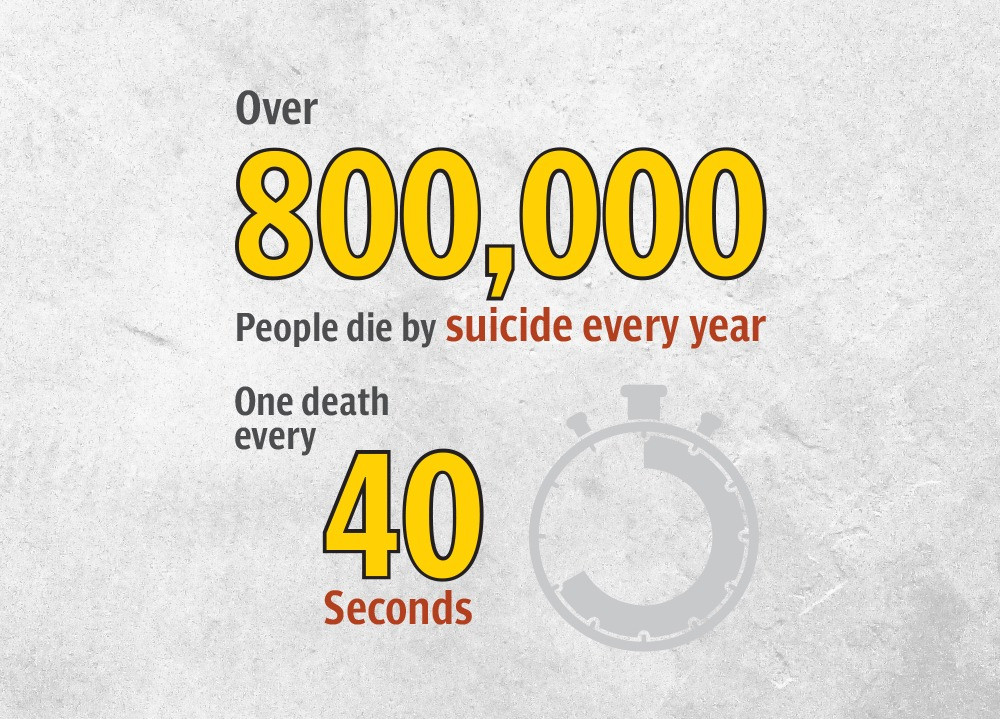
Law of deterrence
Advocate High Court Lahore and legal practitioner Muzzamil Mehmood Khan explained that basically, this is a law of deterrence. “We understand that state has failed to provide necessities and employment to the people, but still it is a state’s responsibility to manage the state. The state ensures that people don’t take their lives due to hunger,” he said.
He elaborates that there is a need to see how many people who attempted suicide were actually jailed. “We hardly come across such cases,” he said.
“Without a doubt, this would be the approach of every prudent mind to console and comfort a person who is already in pain and should not be punished at all,” he said. “There is a need to make the law for the hurt souls.
On the other hand, Assistant Professor of Psychiatry at the Liaquat Medical University of Health Sciences (LMUHS) Hyderabad, Dr Jamil Jonejo told The Express Tribune that if the law of deterrence was so effective then it would have also been adopted by developed countries. “Our all research and knowledge comes from the developed world and I haven’t come across any model that shows or supports the law of deterrence when it comes to mental health issues,” he pointed out. There is a need to create awareness about mental health issues instead of scaring people and that too who are facing financial and other difficulties in their lives.
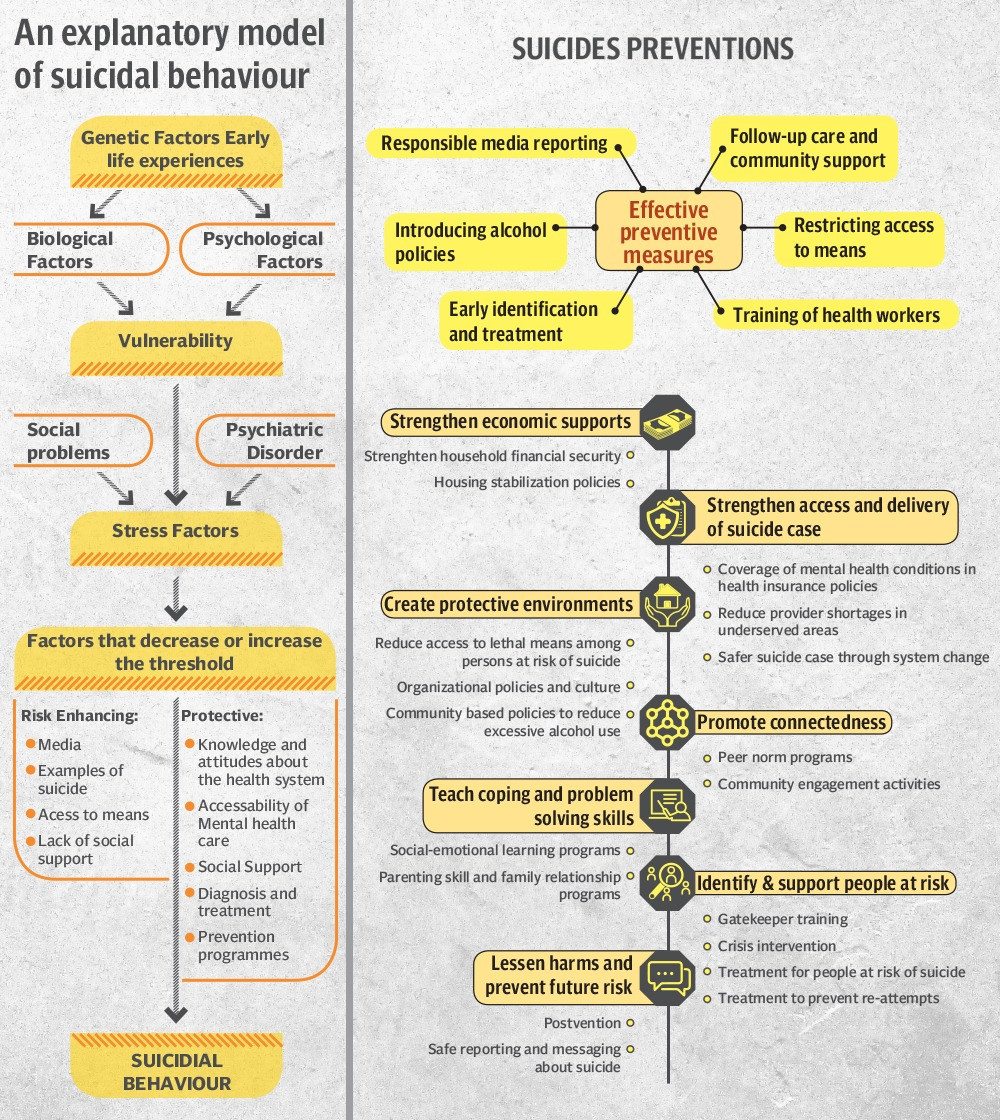
Decriminalise suicide
According to Dr Jonejo, India has also decriminalised suicide. “We should decriminalise attempted self-harm. This is vital because Section 325 of the Pakistan Penal Code is a powerful deterrent for most people against seeking medical help, and problematic because detection and treatment of high-risk cases is a critical suicide prevention strategy. The previous attempt at self-harm is a well-known risk factor for complete suicide.
He said that to amend Section 325, Senator Dr Karim Khuwaja’s bill was passed by the Senate in 2018. The Council of Islamic Ideology had approved the bill and later it was sent to the National Assembly. But unfortunately, it lapsed following the change in government. The next attempt may be started by the government or political parties in the senate and national assembly, he added.
Implementation of section 49 of Sindh Mental Health Act “A person who attempts suicide shall be assessed by an approved psychiatrist and if found to be suffering from a mental disorder shall be treated appropriately under this section.”
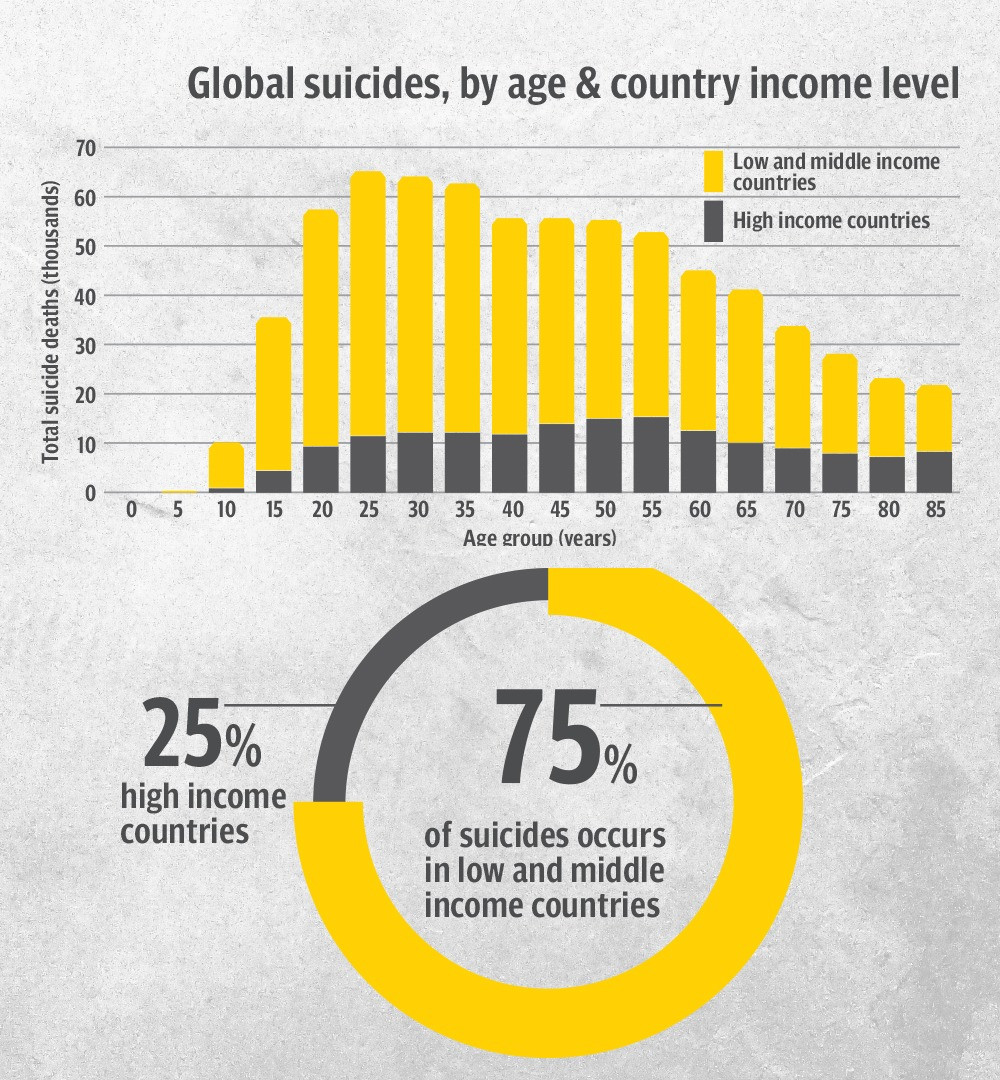
Mental health education
Dr Jonejo said that Pakistan Medical and Dental Council prepares medical syllabus and designs courses for medical students. “We have a British model of training and we follow them in medical and surgery too. In Britain, they have changed their subjects and mental health comes first in the syllabus. When we talk about mental health only two words come to our mind: psychiatry which is a clinical subject while the other subject is a behavioural science which means first or second year of students are taught about behavioural science but this subject is not taught to medical students in Pakistan. Even some basic questions such as what is mental health, what is its scope and what is the social origin of mental health?
Unfortunately, this subject is not taught in Pakistan which is why mental health is still in isolation in the country. The main issue is that Pakistan Medical and Dental Council hasn’t revised its syllabus for years. Behaviroual science is an optional subject and not compulsory. That is why when most doctors start practicing after completing their education, their understanding of mental health is nothing more than that of a layperson in society. How will this society progress when a medical doctor does not understand mental health. Therefore, there is a need to introduce mental health as a compulsory subject.
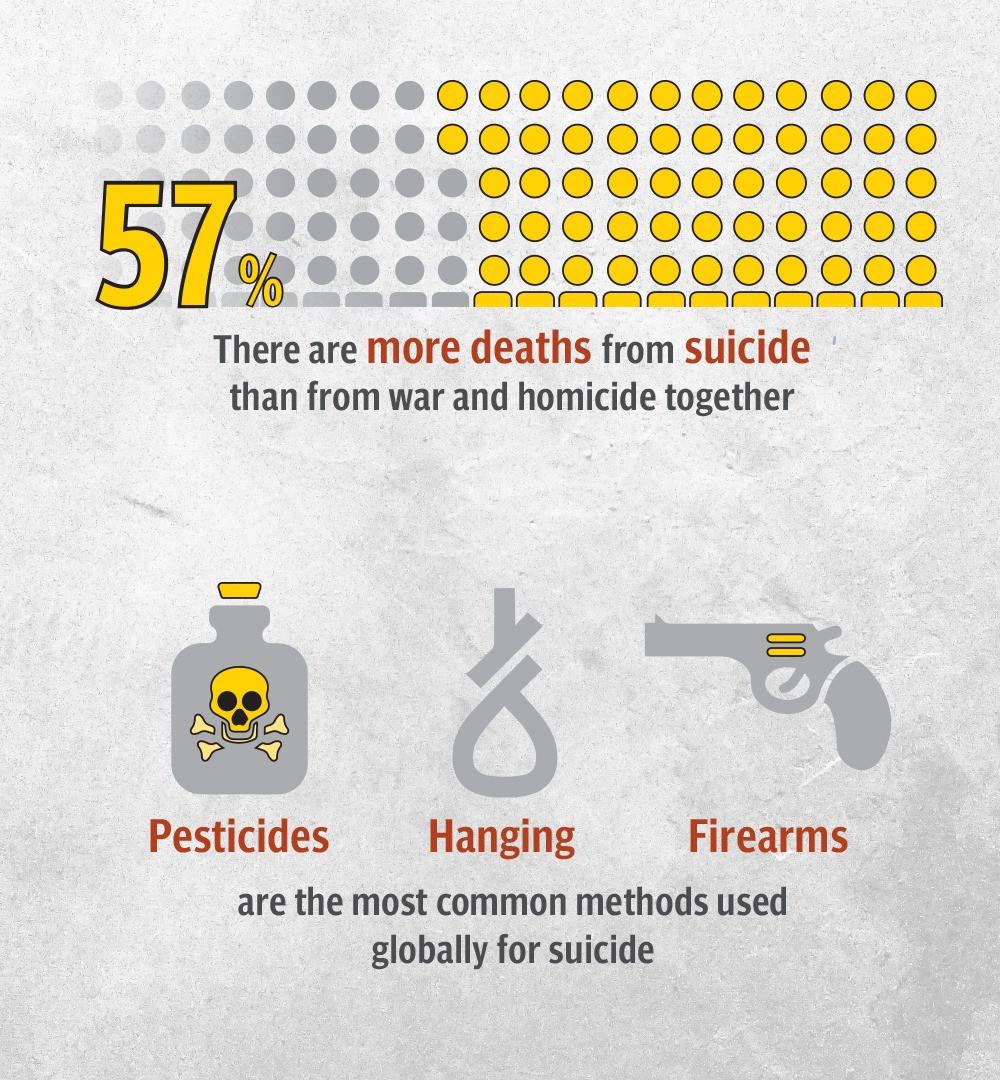
Dearth of psychiatrists, therapists
Experts believe that if medical attention is addressed properly through psychotherapy, it can prevent people from taking this extreme step. According to a report, there are only 400 trained psychiatrists in Pakistan to cater to the medical needs of over 200 million people. Moreover, nearly 15 million suffer from various mental health illnesses every year around the world, and many cases come from developing countries.
